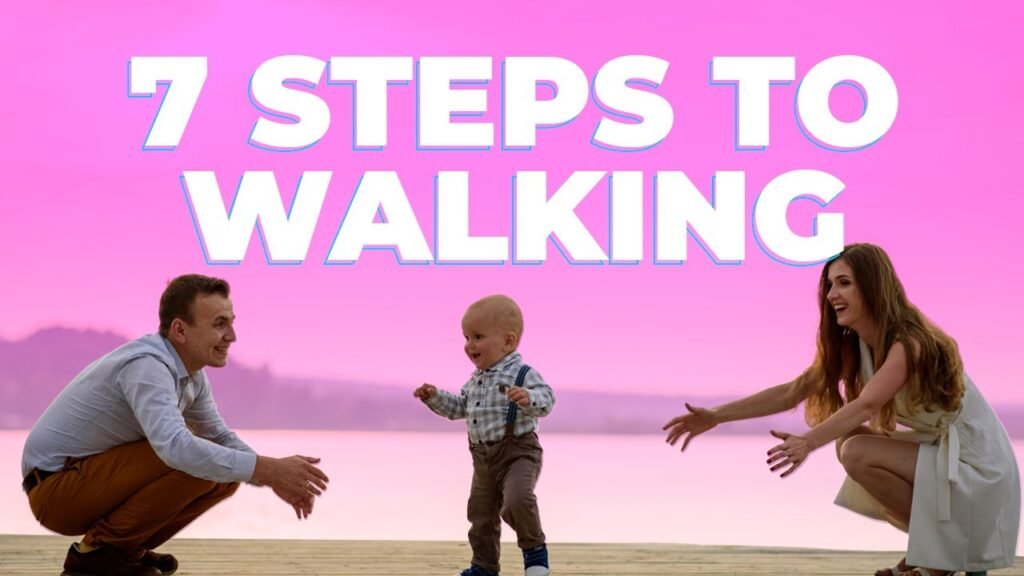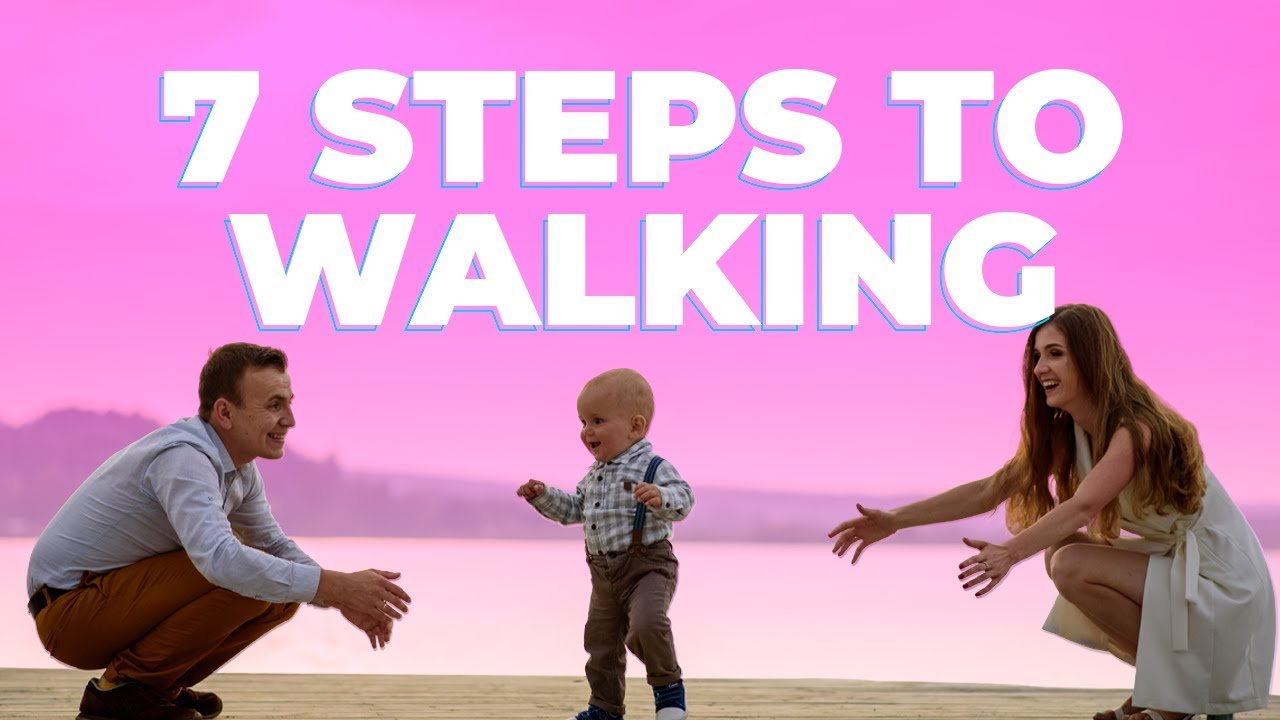You may be wondering when your little one will take their first steps, and this article is here to guide you through the developmental milestones leading up to walking success. From sitting to crawling, standing, cruising, and finally walking independently, each milestone is a stepping stone toward your baby’s mobility. By celebrating these achievements along the way, you can track your baby’s progress and provide the essential encouragement and support needed for them to master the skill of walking.
As your baby grows and achieves each milestone, remember that falling while learning to walk is normal. With arms helping to maintain balance, your baby will gradually gain the strength and coordination needed to walk confidently. By understanding these developmental milestones and the usual ages for achievement, you can support your little one on their journey to walking independently. Celebrate each step along the way and enjoy watching your baby explore the world on their own two feet.

Understanding Developmental Milestones
As a parent, it’s essential to recognize the significance of developmental milestones in your baby’s journey towards walking independently. These milestones are crucial indicators of your child’s growth and development, paving the way for them to achieve the ability to walk. Celebrating these achievements not only acknowledges the hard work and progress your baby has made but also boosts their confidence and motivation.
Key Developmental Milestones
Sitting
The ability to sit up independently is a fundamental milestone that babies typically achieve around six months of age. Sitting upright helps babies develop core strength and stability, preparing them for the next stages of physical development.
Crawling
Crawling is a milestone that usually occurs between six to ten months of age. It helps babies build upper body strength, coordination, and spatial awareness. Crawling also contributes to the development of gross motor skills.
Standing with Support
Pulling themselves up to a standing position while holding onto furniture is a significant milestone for babies, typically achieved between nine to twelve months of age. This stage marks the transition from sitting to standing and sets the foundation for walking.
Cruising
Cruising involves walking while holding onto furniture for support. This milestone usually occurs between nine to twelve months of age and helps babies improve their balance, coordination, and confidence in moving around independently.
Walking with Support
Babies often start practicing walking with support from objects like furniture or baby push walkers around their first birthday. This stage allows babies to build leg strength, improve balance, and take their first steps with assistance.
Walking Independently
Walking independently is the ultimate milestone in a baby’s journey towards mobility. Most children begin walking independently between 12 to 15 months of age, showcasing their improved coordination, strength, and confidence in their abilities.
Resources for Milestone Tracking
Watch Emma Hubbard’s video for typical milestones
Emma Hubbard’s video provides valuable insights into the typical milestones babies go through on their path to walking. By watching this video, you can learn more about each milestone and when they are usually achieved.
Get the free 0-12 months milestone chart
Tracking your baby’s developmental milestones is crucial for monitoring their progress and identifying any areas of concern. The free 0-12 months milestone chart offers a comprehensive overview of the milestones your baby may reach during their first year of life.
Download the PDF document for detailed milestones
For a more in-depth understanding of developmental milestones and when to expect them, download the PDF document available in the description box. This resource will help you stay informed about your baby’s physical development and celebrate each milestone achieved.
Walking Transition
Walking typically begins around 12-15 months
While every child develops at their own pace, most babies start walking independently between 12 to 15 months of age. This transition marks a significant milestone in their physical development and showcases their progress in achieving mobility.
Falling while learning to walk is normal
It’s important to remember that falling while learning to walk is a natural part of the process. Babies rely on their arms to maintain balance and prevent injuries as they navigate the challenges of walking for the first time.
Using arms to maintain balance
Observing your baby using their arms to maintain balance while walking is a positive sign of their developing coordination and motor skills. Encouraging this behavior and providing a supportive environment can help them build confidence in their walking abilities.
Supportive Environment
Encouragement is crucial in the walking process
Offering words of encouragement and praise as your baby progresses through each milestone can positively impact their motivation and self-esteem. Building a supportive environment that celebrates their achievements creates a nurturing atmosphere for continued growth.
Providing support and safety measures
Ensuring that your baby has a safe and secure environment to practice walking is essential for their well-being. By setting up safety measures and providing support when needed, you can help your baby explore and develop their walking skills with confidence.
Creating a safe space for exploration
Designating a safe space for your baby to practice walking allows them to freely explore their mobility without unnecessary risks. By creating a conducive environment for learning and movement, you can facilitate their physical development and independence.
Physical Development and Walking Success
How milestones contribute to physical growth
Each developmental milestone plays a critical role in your baby’s physical growth and development. From strengthening muscles to improving coordination, these milestones collectively prepare your baby for the challenges of walking.
Building muscle strength through milestones
The progression from sitting to crawling to standing and walking helps build essential muscle strength in different areas of your baby’s body. By actively engaging in each milestone, your baby develops the necessary muscles to support their growing mobility.
Enhancing coordination abilities
Mastering developmental milestones enhances your baby’s coordination abilities and fine-tunes their motor skills. By practicing activities like sitting, crawling, and standing, your baby learns to coordinate their movements and achieve greater control over their body.
Mental and Emotional Aspects
Boosting confidence through milestone achievements
Each milestone achieved by your baby contributes to a sense of accomplishment and boosts their confidence. Recognizing their efforts and progress instills a positive mindset and encourages them to continue exploring new skills.
Fostering independence and problem-solving skills
As your baby progresses through developmental milestones, they gain independence and develop problem-solving skills. Encouraging them to overcome challenges and navigate new experiences promotes resilience and a proactive approach to learning.
Nurturing a sense of accomplishment
Celebrating milestone achievements with your baby fosters a sense of accomplishment and pride in their abilities. By acknowledging their hard work and perseverance, you create a supportive environment that encourages further growth and development.
Role of Parents and Caregivers
Offering encouragement and positive reinforcement
As a parent or caregiver, your role in supporting your baby’s journey towards walking is crucial. Offering words of encouragement and positive reinforcement motivates your baby to continue striving towards their goals and celebrates their progress.
Supporting the child through challenges
It’s important to provide support and assistance to your baby as they navigate the challenges of learning to walk. By being present, patient, and attentive to their needs, you can help them overcome obstacles and build resilience.
Understanding individual pace and progression
Every child develops at their own pace, and it’s essential to respect your baby’s individual progression. By recognizing their unique abilities and limitations, you can tailor your support to meet their specific needs and encourage their growth.
Celebrating Milestone Achievements
Importance of celebrating small victories
Celebrating each milestone achieved by your baby, no matter how small, is important for their morale and self-confidence. By acknowledging their progress and effort, you create a positive reinforcement loop that encourages further achievements.
Creating a supportive and joyous environment
Creating a supportive and joyous environment for your baby’s milestones sets the tone for positive experiences and long-term growth. By fostering a sense of excitement and celebration, you instill a culture of encouragement and enthusiasm.
Recognizing effort and determination
Recognizing the effort and determination your baby puts into reaching each milestone is vital for their sense of accomplishment. By highlighting their hard work and perseverance, you reinforce the value of resilience and dedication in the face of challenges.
Conclusion
Understanding the significance of developmental milestones in your baby’s journey towards walking is essential for their overall growth and development. By recognizing the key milestones, providing support and encouragement, and celebrating achievements, you can create a nurturing environment that fosters confidence, independence, and success in your baby’s walking journey. Embrace each milestone with enthusiasm and joy, knowing that each step brings your baby closer to the exciting milestone of walking independently.

